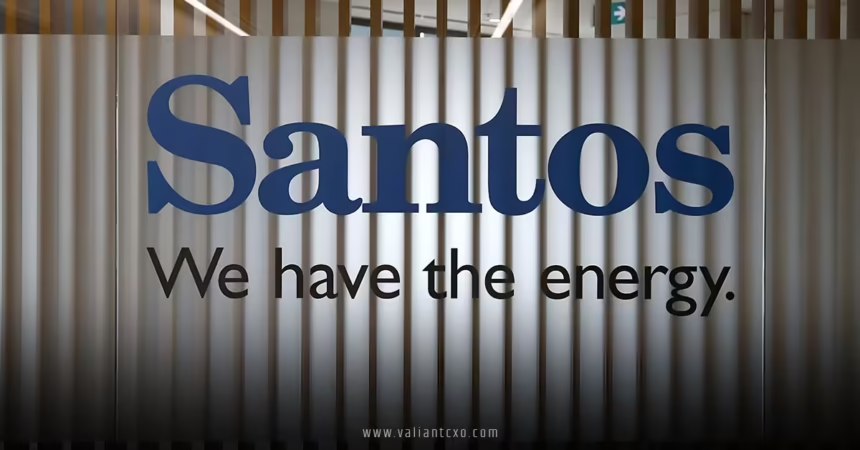Abu Dhabi Santos takeover bid has just imploded in spectacular fashion, leaving the energy world buzzing with questions and a bit of shock. Picture this: a powerhouse from the Middle East eyeing one of Australia’s biggest gas giants, only for the deal to fizzle out right before the finish line. As someone who’s followed the twists and turns of global energy mergers, I can’t help but feel a mix of disappointment and curiosity about how this shakes out. In this deep dive, we’ll unpack everything from the bid’s origins to its sudden end, and explore what it means for investors, the industry, and even everyday energy consumers.
Understanding the Abu Dhabi Santos Takeover Bid
Let’s start at the basics, shall we? The Abu Dhabi Santos takeover bid wasn’t just any corporate shuffle; it was a bold move in the high-stakes game of international energy deals. At its core, this bid involved a consortium led by Abu Dhabi’s state-backed oil giant, aiming to snap up Santos Ltd., Australia’s leading independent gas producer. Why does this matter? Well, in a world racing toward cleaner energy while still craving reliable gas supplies, such mergers can reshape supply chains, boost innovations, or even spark geopolitical ripples.
Who is Santos? A Quick Primer on the Aussie Energy Player
Santos Ltd. isn’t your average oil and gas outfit—it’s a veteran in the field, born back in 1954 in the sun-baked lands of South Australia. Headquartered in Adelaide, this company has grown into a global force, with operations sprawling across Australia, Papua New Guinea, Timor-Leste, and even the United States. Think of Santos as the unsung hero of natural gas: they explore, produce, and ship liquefied natural gas (LNG) that powers homes, industries, and transitions to lower-carbon futures.
I’ve always admired how Santos balances big projects like the massive Barossa gas field with commitments to domestic supply. Their portfolio includes stakes in LNG export plants, crude oil ventures, and even emerging carbon capture tech. But here’s the rub—Santos has been a takeover magnet for years, fending off suitors while navigating volatile markets. The Abu Dhabi Santos takeover bid felt like the culmination of that allure, promising a cash infusion that could supercharge their ambitions.
The Power Players: Abu Dhabi and ADNOC’s Ambitious Reach
Now, shift your gaze to the desert sands of Abu Dhabi. The emirate, flush with oil wealth, has been diversifying like a savvy investor at a stock market frenzy. Enter ADNOC—Abu Dhabi National Oil Company—the state-owned behemoth that’s not content with just pumping crude. Through its investment arm, XRG, ADNOC has been on a global shopping spree, eyeing assets that secure long-term energy security.
The Abu Dhabi Santos takeover bid was spearheaded by this XRG-led consortium, which included heavy hitters like TotalEnergies from France. Their goal? To blend Abu Dhabi’s financial muscle with Santos’ operational expertise, creating a LNG powerhouse capable of feeding Asia’s insatiable demand. Imagine merging the precision of Middle Eastern strategy with Australia’s resource-rich playground— it sounded like a match made in energy heaven. But as we’ll see, even the best-laid plans can hit sandstorms.
The Timeline of the Abu Dhabi Santos Takeover Bid
Unraveling the Abu Dhabi Santos takeover bid requires a chronological lens, much like piecing together a thriller novel. What started as whispers in boardrooms escalated to a full-blown saga, only to end in a plot twist no one saw coming.
The Spark: Initial Offer and Early Excitement
It all kicked off in June 2025 when the XRG consortium lobbed an indicative offer at Santos: a whopping $18.7 billion, translating to about A$22.80 per share—a solid 20% premium over the market price at the time. I remember the buzz; energy stocks perked up, and analysts were scribbling feverish notes. The Abu Dhabi Santos takeover bid promised not just cash but strategic synergies, like expanding LNG exports to secure Abu Dhabi’s post-oil future.
Santos’ board didn’t waste time—they recommended shareholders back the deal, seeing it as a lifeline amid fluctuating gas prices. For months, the talks hummed along, with due diligence teams poring over assets like detectives on a case. The consortium even sweetened the pot, adjusting terms to address Australian regulatory concerns. It felt inevitable, didn’t it? Like watching a chess master position for checkmate.
Negotiations Heat Up: Due Diligence Drama
As summer turned to autumn, the Abu Dhabi Santos takeover bid entered the gritty phase. Due diligence revealed Santos’ crown jewels—fields like Darwin LNG and Gladstone—but also some thorny issues. The consortium pushed for clarity on tax implications, while Santos held firm on protecting shareholder value. Emails flew, meetings dragged into the night, and whispers of sticking points leaked out.
One analogy that sticks with me: it’s like dating someone amazing but discovering their family baggage is heavier than expected. The XRG team, backed by ADNOC’s deep pockets, wanted guarantees on domestic gas reservations for Australia, a hot-button issue Down Under. Tensions simmered, but optimism lingered. By September, a binding offer seemed imminent, with the deadline looming like a storm cloud.
The Shocking Withdrawal: End of the Abu Dhabi Santos Takeover Bid
Then, bam—on September 17, 2025, the consortium pulled the plug. In a curt statement, XRG cited “several impacting factors” from due diligence that altered their valuation. No more Abu Dhabi Santos takeover bid; just echoes of what could have been. Santos confirmed the news, expressing disappointment but vowing to press on independently. The energy markets reeled, with Santos shares tumbling 12% overnight. Why the sudden exit? Let’s dig deeper.
Key Reasons Behind the Failure of the Abu Dhabi Santos Takeover Bid
The collapse of the Abu Dhabi Santos takeover bid wasn’t random—it stemmed from a perfect storm of commercial, regulatory, and market pressures. As an observer of these deals, I’ve seen how one snag can unravel the whole thread.
Looming Tax Liabilities: The Hidden Deal-Breaker
Topping the list? Capital gains tax (CGT) bombshells. Santos faces billions in CGT payments on key assets, a revelation that hit the consortium like a rogue wave. Australian tax laws are no joke, and the XRG team balked at the unexpected liability, which could have inflated the deal’s true cost beyond the $18.7 billion headline figure. Imagine buying a dream home only to find out the roof needs a full replacement—suddenly, the price tag doubles.
Santos argued these were known risks, but the consortium saw it as inflexibility. This tax hurdle, combined with demands for concessions, eroded trust. In the end, it tipped the scales, making the Abu Dhabi Santos takeover bid too risky for ADNOC’s calculated approach.
Global Gas Market Headwinds: Timing Couldn’t Be Worse
The energy sector is a fickle beast, and 2025 has been rough on natural gas. With renewables surging and demand softening in key markets like Europe and Asia, LNG prices have dipped. The Abu Dhabi Santos takeover bid launched amid this uncertainty, and by withdrawal time, headwinds had turned into gales.
ADNOC, ever the strategist, likely reassessed: Why overpay for assets in a cooling market? Geopolitical tensions, from Middle East flare-ups to U.S. export curbs, added layers of doubt. It’s like betting big on a horse race just as the track turns to mud—the odds shift fast.
Regulatory and Domestic Supply Hurdles
Australia’s government isn’t keen on foreign takeovers that might jeopardize local energy security. The Abu Dhabi Santos takeover bid required Foreign Investment Review Board (FIRB) approval, plus commitments to reserve gas for domestic use amid shortages. The consortium pushed back, viewing these as overreaches that diluted value.
Media reports amplified the noise, with speculation of political pressure sealing the deal’s fate. In a nation where energy independence is sacred, these roadblocks proved insurmountable. Rhetorically, who wants a suitor that doesn’t respect the family’s rules?
Implications for Santos After the Abu Dhabi Santos Takeover Bid Fails
With the Abu Dhabi Santos takeover bid in the rearview, Santos stands at a crossroads. The immediate fallout is painful, but savvy moves could turn this lemon into lemonade.
Stock Market Jitters and Investor Sentiment
Santos’ shares nosedived post-announcement, shedding over $2 billion in market value as the premium evaporated. Investors, already weary from past fumbles, are questioning management. Analysts like those at Jarden downgraded the stock to “underweight,” citing eroded confidence.
But hey, dips like this often precede rebounds. For the average shareholder, it’s a gut punch—watching a potential windfall vanish. Yet, it opens doors for bargain hunters eyeing Santos’ undervalued assets.
Charting a Solo Path: Future Growth Strategies
Santos isn’t waving a white flag. CEO Kevin Gallagher emphasized a “strong business case” independent of the deal, spotlighting projects like Barossa and Vaca Muerta in Argentina. Calls are growing to demerge domestic and LNG arms, potentially unlocking value and attracting niche buyers.
In the longer term, Santos could accelerate low-carbon initiatives, like hydrogen and CCS, to align with global shifts. The failed Abu Dhabi Santos takeover bid might just force innovation—think of it as a breakup that inspires self-improvement. With solid reserves and a proven track record, Santos has the chops to thrive solo.
Previous Takeover Attempts: Santos’ History of Dodging Bullets
The Abu Dhabi Santos takeover bid marks the third strike for Santos in seven years, painting a pattern of near-misses. Back in 2018, private equity-backed Harbour Energy tabled a $10.8 billion offer, which Santos politely declined, deeming it undervalued.
Then, in 2023, another consortium circled, but talks fizzled over similar valuation spats. Each rebuff has toughened Santos’ stance, but also frustrated shareholders craving liquidity. Why the allure? Santos’ LNG prowess in a transitioning world makes it a prime target. Yet, as history shows, the company prefers organic growth over forced marriages.
This string of failures raises eyebrows: Is Santos too picky, or are bidders underestimating Aussie complexities? Either way, the Abu Dhabi Santos takeover bid’s collapse reinforces that pattern, leaving pundits wondering if a fourth suitor lurks.
Broader Ripples: The Abu Dhabi Santos Takeover Bid’s Impact on Energy
Zoom out, and the failed Abu Dhabi Santos takeover bid sends shockwaves beyond boardrooms. For the global LNG market, it signals caution—Middle Eastern players like ADNOC may pivot to less regulated terrains, potentially hiking prices for Australian exports.
In Australia, it spares the government a FIRB headache but highlights energy policy gaps. Domestically, gas supply debates intensify, pushing for reforms that balance exports with local needs. Globally, it underscores the energy transition’s chaos: fossil fuel assets are hot commodities, yet burdened by taxes, regs, and green pressures.
From my vantage, this bid’s demise could accelerate diversification. Abu Dhabi might eye U.S. shale next, while Santos doubles down on Asia-Pacific ties. It’s a reminder that in energy, no deal is set in stone—adaptability wins the race.
As we wrap up the saga of the Abu Dhabi Santos takeover bid, one thing’s clear: it was a high-wire act that tumbled, but not without lessons. From tax traps to market moods, the collapse highlights the perils of mega-deals in turbulent times. For Santos, independence beckons with growth potential; for ADNOC, it’s back to the drawing board. Investors, keep watching—this story’s far from over. What do you think—will Santos find a better match, or shine alone? Stay tuned; the energy game never sleeps.
Frequently Asked Questions (FAQs)
What was the value of the Abu Dhabi Santos takeover bid?
The Abu Dhabi Santos takeover bid was valued at around $18.7 billion, offering A$22.80 per share—a 20% premium that excited shareholders before it fell apart.
Why did the consortium withdraw from the Abu Dhabi Santos takeover bid?
Key factors included hefty capital gains tax liabilities on Santos’ assets, softening global gas markets, and disagreements over domestic supply guarantees, making the deal commercially unviable.
How has the failure of the Abu Dhabi Santos takeover bid affected Santos’ stock price?
Santos shares dropped about 12% immediately after the announcement, wiping out billions in market value and leading to analyst downgrades amid investor frustration.
Is this the first takeover attempt on Santos related to the Abu Dhabi Santos takeover bid context?
No, the Abu Dhabi Santos takeover bid was the third major attempt in recent years, following rejected offers in 2018 and 2023, showing Santos’ history as a desirable but elusive target.
What’s next for Santos after the Abu Dhabi Santos takeover bid collapsed?
Santos plans to focus on independent growth, advancing projects like Barossa and exploring demergers, while navigating a tougher market without the bid’s financial boost.
Read More:valiantcxo.com


